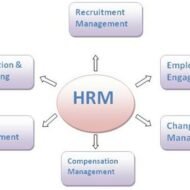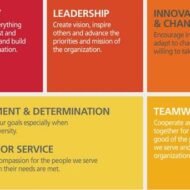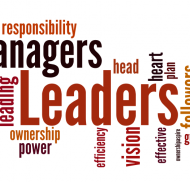Posted by Managementguru in Business Management, Change management, Human Resource
on Jun 25th, 2014 | 0 comments

Smith et al. describe management as “Making Organizations perform”. Management is concerned with Individuals who are delegated authority to manage others – Let me call them ‘People with Power’. Activities for achieving goals – ‘Real Action Plans’. A body of knowledge represented by theories and frameworks about people and organizations – ‘Policy Framework’. What do managers do? As we all know they are involved in general management functions like Forecasting Planning Organizing Motivating Co-ordinating Controlling Are you aware of the ‘hidden’ dimensions of a manager’s job? Modern management theories, although highlighting the complexity of the role, have yet to provide sufficient empirical research and advice into key areas that enable both managers and organizations to increase their effectiveness. For example Dealing competently with organizational politics (“You can ignore it, but it won’t go away” – This is how surveyed employees said they viewed office politics) Successfully managing change (Adaptability is about the powerful difference between adapting to cope and adapting to win) Controlling ethical issues and demands (It takes 20 years to build a reputation and five minutes to ruin it. If you think about that, you’ll do things differently.) Developing the role of women managers (Women can be better managers than men because they tend to be more conservative and do their homework. Men tend to take more risk without the research) Ensuring personal ‘survival’ and career success in organizations (A successful man is who lays a firm foundation with the bricks others throw at him.) Safeguarding personal health in a stressful environment (Manage stress before it manages you). How to achieve a more comprehensive view of development? Frameworks for setting, linking, and balancing individual and organizational objectives. Systems for identifying and selecting managers Structures to support, motivate and reward Plans to enable career progression Mechanisms to measure and evaluate performance. HRM and Management Development Human resource management as the name suggests is about the effective management of people in organizations. HRM involves the integration of people with business goals and strategies HRM views people as assets to be developed and utilized in a productive way rather than costs to be minimized or eliminated. The philosophies, ideologies, values and beliefs of management that operate and dominate within the organization have an impact on people management. The practices, policies and management styles that managers employ in their managerial role also align people’s behavior towards organizational goals. Senior managers determine the extent to which people are integrated into the organization’s strategic plans. They set the agenda and create the culture climate of prevailing values, attitudes and behavior. Middle and junior managers translate and ‘operationalize’ broader human resource strategies and policies. They give HRM its meaning and reality. It is their perfect management style and actual behavior that decided how the human resources is deployed and managed and thus what people experience as human resource management. The way managers themselves are managed and developed is a significant influencing factor in the way people are subsequently...

Posted by Managementguru in Business Management, Entrepreneurship, Human Resource, Organisational behaviour, Principles of Management, Training & Development
on Mar 30th, 2014 | 0 comments

Values and Beliefs in Organizations What are Values and Beliefs in an Organization: An organisational value is “a belief that a specific mode of conduct is preferable to an opposite or contrary mode of conduct.” Infosys Narayanamoorthy on Value System : Our team was unique in our commitment to a strong value system. We believed in putting the interest of the company ahead of our own interest. We believed in legal and ethical business. A sound value system is what differentiates long-term players from others. Core Values of an Organization: Increasingly, organizations are setting out the core values that they think should govern the behavior of all their employees. Value statements may be produced which define core values in areas such as: Care for customers Concern for people Competitiveness Enterprising Excellence Flexibility Growth as a major objective Innovation Market/customer orientation Productivity Quality Teamwork But, is that all? By just defining what you think is important to guide the action of your employees may not suffice the cause. How do you put them into action! That’s where the secret lies. Imitating the Boss: How do you make people do what you want them to do! Just by being a precedence or role model for your followers, is that not true? The best example that can be cited is the school atmosphere, where the kids take to their teachers. They simply, blindly follow or imitate whatever their masters do. I think IMITATION is the right word, because it makes people easily inclined to the behavior that is appreciated by the organisation’s atmosphere. When you imitate your boss you get a surreal feeling of being a boss at least for that time being. Coercion is not the Right Approach: It is a general fact that it is very difficult to train or mould people the way we want to. And again it can be argued that people can be trained or molded very easily when you have the right kind of motivation and guidance. The core values should be INBUILT; it should be there RIGHT FROM THE START. If you have able managers to run your teams it becomes a cake walk for you to train the individuals without much COERCION. The authority and influence which the team leader has over the team says it all. Influencing the Employees the Right Way: Everybody in an organization plays their own role in cherishing the values imbibed and focus on achieving results, and keenness to “GET GOING AND KEEP GOING”. High work output is expected from a clerical staff, the Supervisor can be depended on for effective organization and control of teams and their work. THE MANAGER is clear about what “success “means for the business and is resourceful in overcoming obstacles. THE SENIOR MANAGER maintains focus on the “BOTTOM LINE” despite continuous changes to procedures and systems, and the EXECUTIVE is focused on results even when dealing with very diverse complex tasks and proactive in tackling mistakes. Performance of Value Oriented Organizations: Value Oriented Organisations perform definitely better than others and achieve their targets in a quick manner. Values give direction to the firm backed up by solid principles to guide the action of the employees and also the commitment and determination to achieve whatever is due. Reliance Industries Limited stands as a testimony for a single man’s dream and vision and his core value was CUSTOMER SATISFACTION. To scale to greater heights, you also need STRONG WILLED PEOPLE RIGHT ATTITUDE ACTION PLANS STRATEGIES PERSISTENCE DETERMINATION and PASSION Values add integrity and honor to your organization and you should always remember that to hold your values you...

Posted by Managementguru in Business Management, International Business, Leadership, Marketing, Operations Management, Principles of Management, Sales, Strategy
on Mar 26th, 2014 | 0 comments

Some business firms with a modest and humble beginning make it to the top in a very short span of time. How do you think this is possible? They have a clear strategic vision that guarantees success. Success does not come that easy. You have to have real focus backed up by solid strategies for such resounding success. A strategy is a comprehensive plan of action that sets critical direction and guides the allocation of resources to achieve long-term organizational objectives. Some people formulate strategies and follow suit, some flow along with the stream of situations and react accordingly, rather than merely plotting strategies. Mere strategizing is not enough, you have to look into the actual situation and how it would affect your operations. Learn Sales Hacking Essential sales skills, sales strategies and sales techniques to sell just about anything! Let us have a clear understanding on the reasons for formulating a strategy Business has gone global for many reasons, including reactive ones like, international competition, customer demands and trade barriers, and proactive ones like seeking economies of scale, new international markets, resource access and cost savings. After the liberalization, globalization and privatization processes activated in full swing, many firms have come to the limelight in the international market scenario, which has provided them with a solid head start. Companies have to respond to both changes in the external environment and emerging opportunities. An opportunity not well utilized is an opportunity lost. Rational planning is called for to meet international expansion through workable strategies. International corporate strategy is purely based on the intentions of your firm, the objectives that stem out from your vision and can be materialized by scanning the environment for threats and opportunities, assessing the internal strengths and weaknesses of the firm, considering alternative international entry strategies and firming up on the workable ones. List down the answers to the following questions and you may arrive at a reasonable conclusion on your company’s market standing. Strengths What are your advantages?What is the activity that you specialize in?What is your uniqueness that differentiates you from your competitors? Your own viewpoint and that of the people you deal with is necessary. It is important to be honest and realistic. This exercise helps you and your team to understand the mission and purpose. Weaknesses What is done badly?What could be done better?What should be avoided?What causes problems or complaints? To identify the unpleasant truths as quick as possible is the notion of this exercise. Ascertain Your Priorities After ascertaining the priorities, the strategic management process is carried out with well laid plans, executed by professional strategists followed by implementation of control and evaluation procedures. Any corporate firms go for strategic alliances, that may include, acquisitions, mergers, joint ventures, strategic partnerships, cartel agreements and so on to survive in the international market as well as to exploit the opportunities available in the global market with the available potential resources put to optimal...

Posted by Managementguru in Entrepreneurship, Human Resource, Leadership, Organisational behaviour, Principles of Management
on Mar 20th, 2014 | 0 comments

CEO – Chief Executive Officer Chief Executive Officer : The highest ranking executive in a company who is responsible for a company’s operations , usually the President or the Chairman of the Board. Chief Executive – Architect of an Organization: An architect brings out the aesthetics of a building by infusing soul into spaces through his thought process. Likewise a chief executive (CE) is the most important architect of an organization who is responsible for designing and building all aspects of strategic management right from formulation to evaluation of strategies through thought management. He has multifarious facets to exhibit and designations to be withheld, such as the managing director, executive director, president or general manager in business enterprises. As the chief strategist, he plays a pivotal role in strategic decision-making too. Due to the significance attached to the post, researchers and numerous authors have attempted to redefine their roles, functions and responsibilities from time to time. This is quite understandable since the CE of an association plays the most vital role in determining whether an organization has chosen the right path towards success. Chief Administrator: He might also be called as the organizational leader or builder; chief administrator, implementer or coordinator and communicator of organizational objectives; he should don various roles in the likes of motivator, personal leader or mentor, depending on the function he is anticipated to perform by the management. Every chief executive does not and need not personify all the above cited qualities: but a good chief with high business acumen and an eye for detail can definitely fill the bill over a period of time. Major roles and responsibilities of a chief executive: Enunciation of Corporate Philosophy -with the help of his team members the chief executive must try to set the company’s goals and objectives and supporting strategic moves must be planned from the bottom level to the top. Clues from the external environment must be taken into consideration before making the necessary moves. Growth-all the CE’s are expected to be growth stimulators. This can be accomplished by setting targets which have to be dealt with within the stipulated time period. Employees can be involved in this process to set short term objectives followed by periodical reviews with management executives to evaluate the success rate of the projects undertaken. The expertise and interest of the CE helps to infuse motivation and enthusiasm amongst the work force which results in quick completion of targets. A chief executive is responsible for both external and internal functional responsibilities. His role cannot be confined to a particular sphere of action as he is expected to be a generalist in order to manage effectively and be self sufficient once he reaches the top. Self-management and management of time are very important. Outgoing and should possess charisma Other parameters like age, intelligence, education, functional background and experience are also scrutinized when a company likes to choose its chief strategist. A CE performs the strategic tasks- actions which are essential to provide a direction to the organization in order to achieve its purpose. He is the key person in setting the mission of the organization, deciding the objectives and goals, formulating and implementing the strategies and in setting a concrete ethical prototype to enhance the quality of the system as a...

Posted by Managementguru in Business Ethics, Business Management, Decision Making, Principles of Management, Strategy
on Mar 11th, 2014 | 0 comments

Spirituality and Management The purpose of correlating spirituality and management might present a weird picture to some. Research of the old Hindu scriptures, epics and Vedas disclose the secrets of management etiquettes coated with spiritual sugar which serves as a road map for us to cherish and follow. As an ardent follower of the BHAGAVAT GITA, THE UNIVERSAL BOOK OF SPIRITUAL SCIENCE, it was really amazing for me to know that the core principles of management have already been defined and dealt with that were formulated at a later date by MANAGEMENT GURUS like PETER DRUCKER, HENRY FAYOL, C. K. PRAHALAD and the like. I would like to present four qualities that struck me while I was comparing and contemplating. PERCEPTION AND UNDERSTANDING THE INNER SELF SELF MOTIVATION AND SELF TRANSCENDENCE DUTIES AND RESPONSIBILITIES LEADERSHIP The Leader and the Manager: The LEADER IS BEING FOLLOWED willingly, but a manager has to command individuals in order to adhere to his instructions. So, being a good leader starts from soul searching or understanding the nature of one’s inner self. SELF CONCEPTION gives a different dimension to approach problems. Spiritual experiences induce clarity in thinking that leads to ethical decision making. The spiritual experiences of Arjuna, one of the PANCHA PANDAVAS with LORD KRISHNA made him stronger (at will) and sharper (right perception). Decision Making: “I am the strength of those who are devoid of personal desire and attachment. O Arjuna, I am the legitimate desire in those, who are not opposed to righteousness, “says Lord Sri Krishna. At the war front, Arjuna the GREAT WARRIOR is not sure whether to fight against his own kith and kin. The inspiring words of Krishna motivated him to come out from the state of INERTIA and enter RIGHTEOUS ACTION. It is a testimony of what philosophers call the transcendence from alienation to self confidence to reach ethical decision making. One can never forego his duty or responsibility, be it his personal life or in the management arena. EFFECTIVENESS IS DOING THE RIGHT THINGS EFFICIENCY IS DOING THINGS RIGHT Management Lessons from Mahabharata from Parth Acharya Forming a VISION, planning the right Strategies, pooling the resources, hiring right people for the right job, setting goals and objectives, reviewing by MANAGEMENT BY OBJECTIVES, MANAGEMENT BY EXCEPTION, rewards and recognition, all have been dealt with a masterly excellence in MAHABARATHA which talks about the GURUKSHETRA WAR between the PANDAVAS and KAURAVAS or to simply put it, between THE GOOD AND THE EVIL. “The Supreme Lord is situated in everyone’s heart, O Arjuna, and is directing the wanderings of all living entities, who are seated as on a machine, made of the material energy.”Mind can make you LIBERATED OR BONDED that depends upon your WILL to master it or be a slave. Controlling your mind in turn controls your actions and thought process that leads to well augured efforts that proves fruitful to the human race. Leaders are born and not made goes the saying. But if you are able to be THE MASTER OF YOUR MIND, you are a leader made. Management Lessons from THE BHAGAVAT GITA Applicable to both western and Indian school of management, THE BHAGAVAT GITA deals with problems at the GRASS ROOT LEVEL relating to THE HUMAN PSYCHE. Management lessons from Bhagvad gita from singhm91 It enlightens us on all managerial techniques, goading us towards a serene atmosphere and state of affairs in place of the conflicts, stress, and lack of co-ordination, common in most of the enterprises world wide. “Do your duty perfectly, and the results will follow suit”, is the crux of GITA. How many of us...










